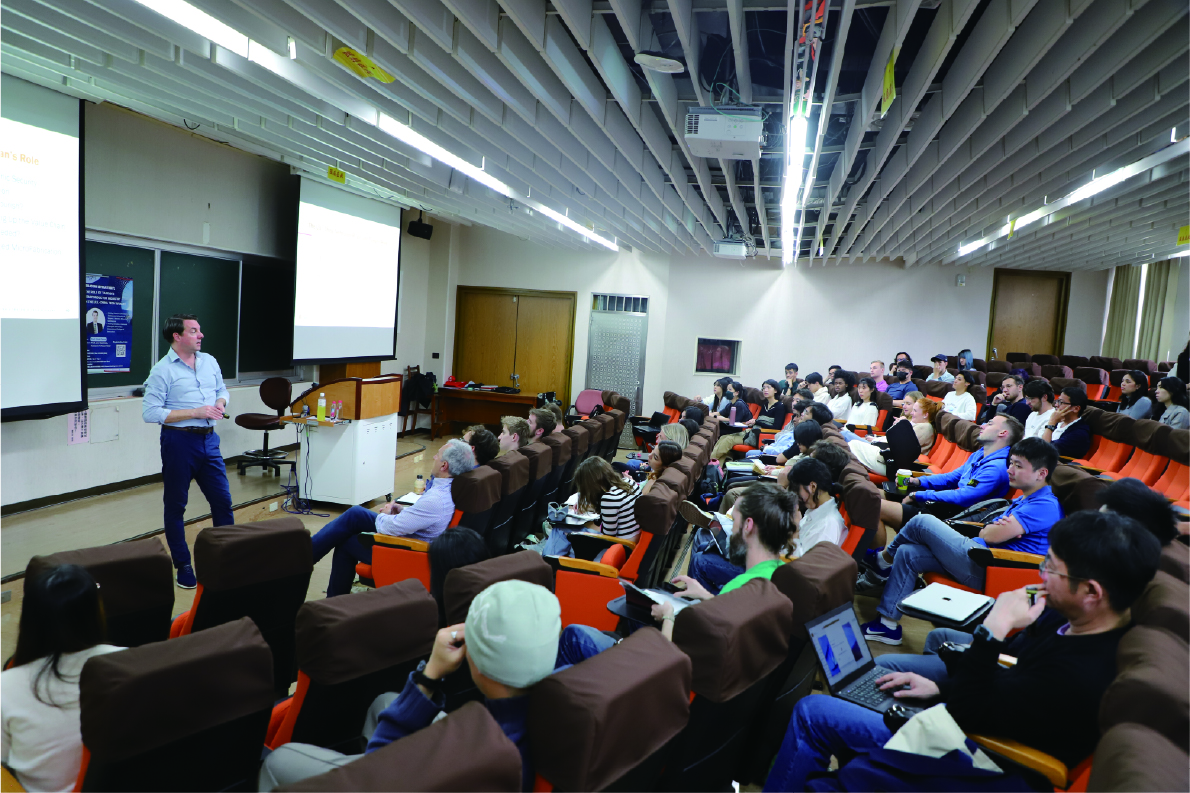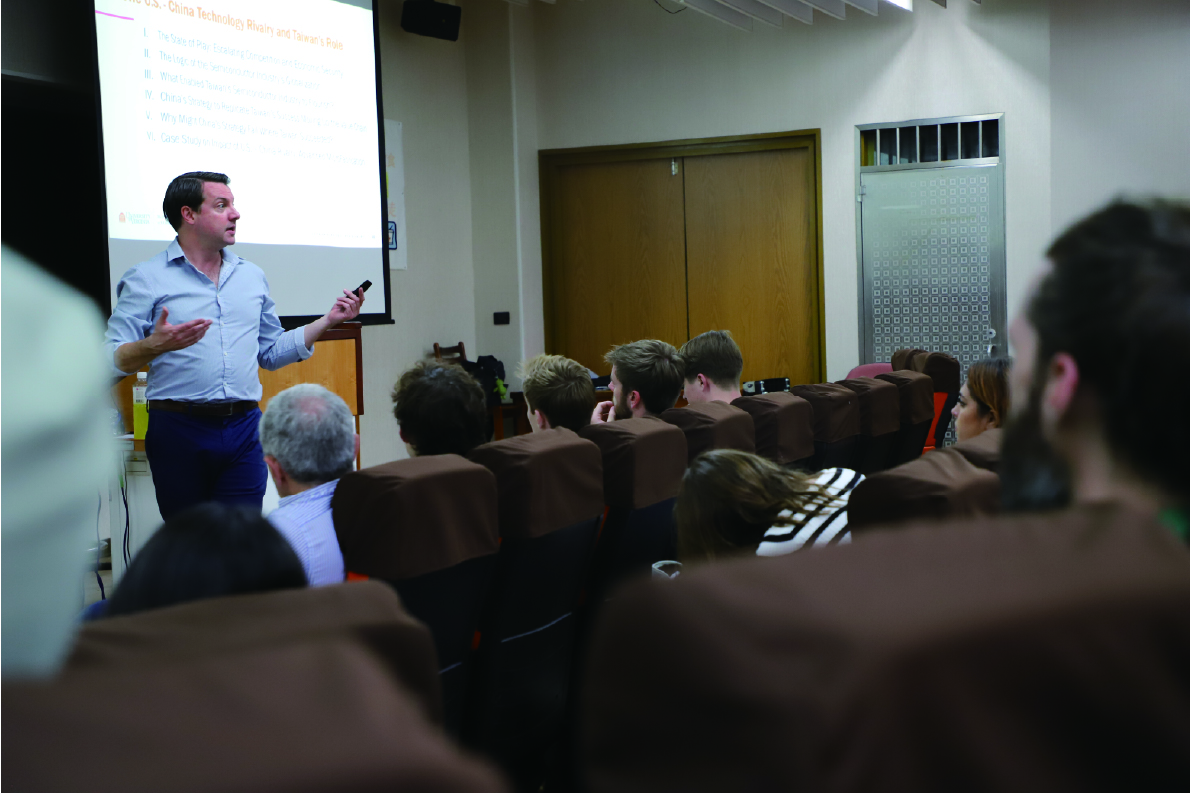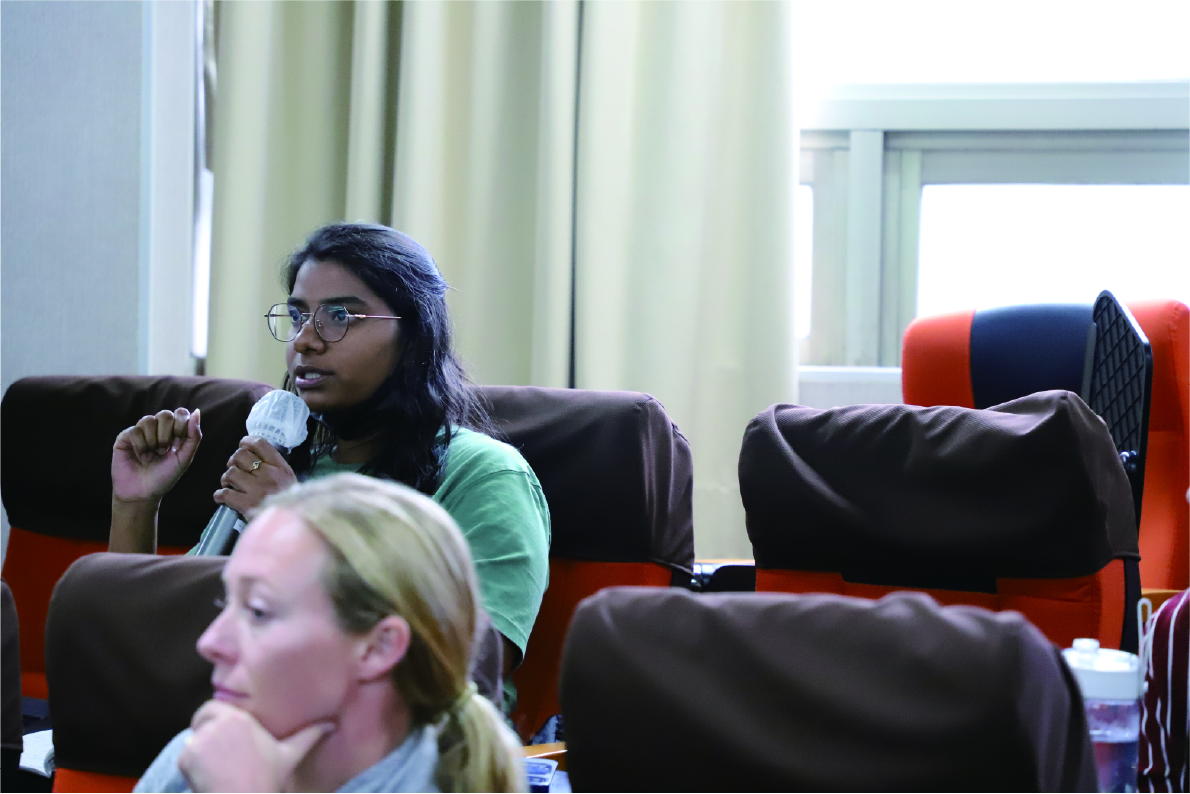In a compelling lecture on the semiconductor industry dynamics and the implications of US-China tech policies, Rick, a visiting scholar at the National ChengChi University International College of Innovation and a lecturer at the Global Commerce University of Virginia, delved into the intricacies of the semiconductor industry and the dynamic interplay in the sector.
Acknowledging the esteemed audience and expressing gratitude to Dean Tu and Vice Dean Lien of ICI for their unwavering support, Rick began the lecture with a brief introduction of his work in Taiwan, including his education in NCCU encompassing an array of topics ranging from Amazon’s business model to the societal impact brought forth by Big Tech.
He later embarked on an insightful exploration of pivotal themes. Addressing the US-China dynamic, Rick elucidated the strategic competition evolving between the two superpowers. With diminishing interdependence and tightened semiconductor export restrictions, the landscape has witnessed pivotal shifts. Notably, TSMC’s initiative to establish a factory in Arizona raises concerns about potential price hikes for consumer electronics like iPhones.
A substantial portion of the discourse was dedicated to Taiwan’s pivotal role in the semiconductor industry, spotlighting TSMC’s technological advancements and Taiwan’s success factors. Rick underscored Taiwan’s early access to US education, government support, and integration into the global economy as key elements fostering success. The capacity for long-term investments in capital-intensive industries, coupled with a flexible ecosystem supporting the global supply chain, were also cited as critical drivers of Taiwan’s ascendancy.
Addressing China’s strategy, Rick elucidated the influx of Chinese students into elite US universities, backed by robust government-industry support and talent recruitment efforts. However, uncertainties loom over China’s capability to sustain long-term investments in capital-intensive industries and its aspirations to dominate the entire supply chain. The analysis concluded that while China might achieve partial success, replicating Taiwan’s success on a comprehensive scale seems elusive.
Rick further delved into a few case studies on the US-China rivalry. His first example regards advanced microfabrication, highlighting the impact of export controls on China’s semiconductor industry. This scrutiny shed light on China’s increased revenue and net profit following US export restrictions, underscoring the shifting dynamics between the two technological powerhouses.
The conclusion drawn from the lecture emphasized the nuanced nature of competition, which can yield both positive and negative outcomes. Rick stressed the importance of allied countries, advocating for integrating third parties into the global tech ecosystem. Building a welcoming and diverse societal foundation was highlighted as crucial in fostering innovation and progress.
The speech resonated as a comprehensive analysis of the semiconductor industry’s geopolitics, intellectual property concerns, and policy uncertainties amid the escalating US-China rivalry. Rick’s insights provided a roadmap for navigating this intricate terrain while underscoring the significance of collaboration and inclusivity in shaping the future of global technology.








